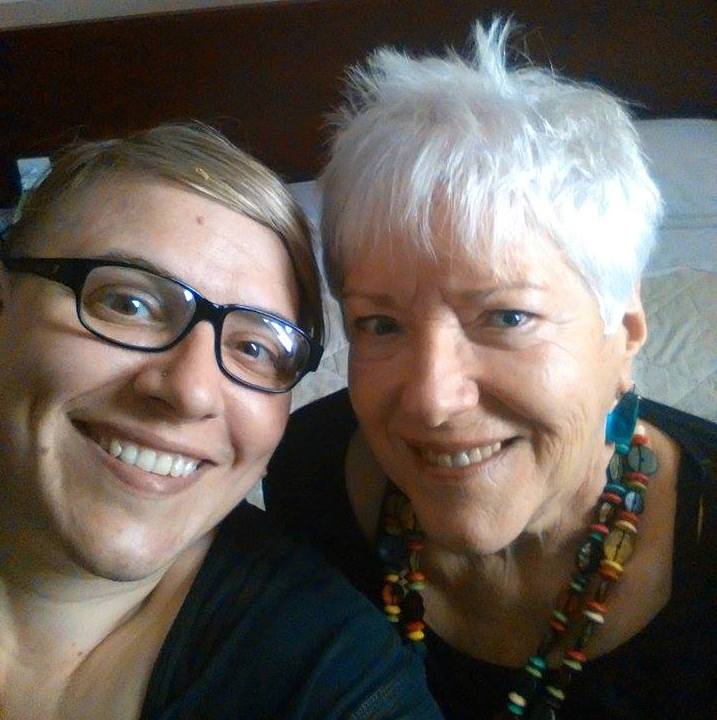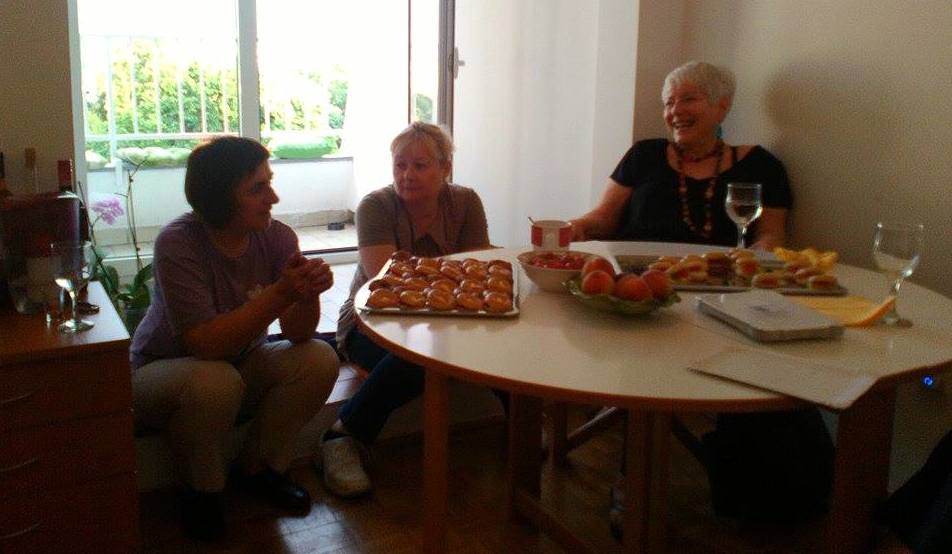Within our program of Feminist philanthropy we were happy to host Marta Drury, our friend , long-term individual donor from the United States, peace and feminist activist , supporter of women’s groups, individuals and initiatives, founder and director of the Heart and Hand Fund. Since nineties, Marta supports lesbian, feminist and peace initiatives in the Balkans and in the USA. She was nominated for the Nobel Peace Prize in 2005, as one of 1000 women for peace.
During her stay with us, Marta shared some of her experiences, observations, future steps and answered some of our questions.
Marta, it is really a pleasure to have you here in Belgrade. I will ask you few questions about feminist philanthropy. Why you think it’s important to invest in women’s human rights?
Well, I am sorry that we have to have a conversation about why it’s important to invest in women’s human rights, because it should be so obvious. I feel like women in general bear the brand of society’s rules and, because worldwide patriarchy rules and when anything goes wrong women are blamed for what’s wrong… and very little money is invested in women’s human rights and needs of women are unrecognized, and I am grateful that there are women and funds out there to see the importance of that.
So why is it important to collect and give money to women?
Only women really understand the special needs that women have. I believe that civilization is basically shaped and changed by women and that women have a lot of power because they are child bearers and they raise the children that will be the population of the next generation and they can shape changes through that activity, but also women are very interested, as far as I know from my experience, in creating community. Not only just through their own families, but larger communities as well, that are the basic units of civil society.
You invest in Balkan women organizations for a long time. Can you see if we have made some changes?
People ask me this question all the time, my funders – what are the changes that I see and it’s a hard question, because change take so long and goes in such small increments. So, it’s hard to say: Oh, yes, incredible changes. But something changes on the level of the spirit. When you work together for common good and that’s where I see changes in Balkans: in different activists that I know in five different countries I work in, in crossing borders, in sisterhood and supporting one another through various and assorted hardships, and also celebrating together and celebrating each other’s work and that creates a level of spirit that it’s hard to put your finger on, but it’s where change happens.
You mentioned crossing borders, celebrating… what solidarity means to you?
It means taking care of each other, having each other’s backs and seeing movements in broader strokes than just our own, particular issue, but taking on a great diversity of subjects, and seeing the intersectionality of all of it and how if that’s someone else’s problem, that may seem very remote for me, really makes a difference in my own life as well… If people are stressed over something that doesn’t seem to have any relationship to my own life, but they are unhappy because of this misconception, than it really does affect me and I need to look more closely what’s going on – to protect myself, but also to protect my friend.
Thanks a lot.
Interview : Zoe Gudović
Transcription: Ana Imširović Đorđević





